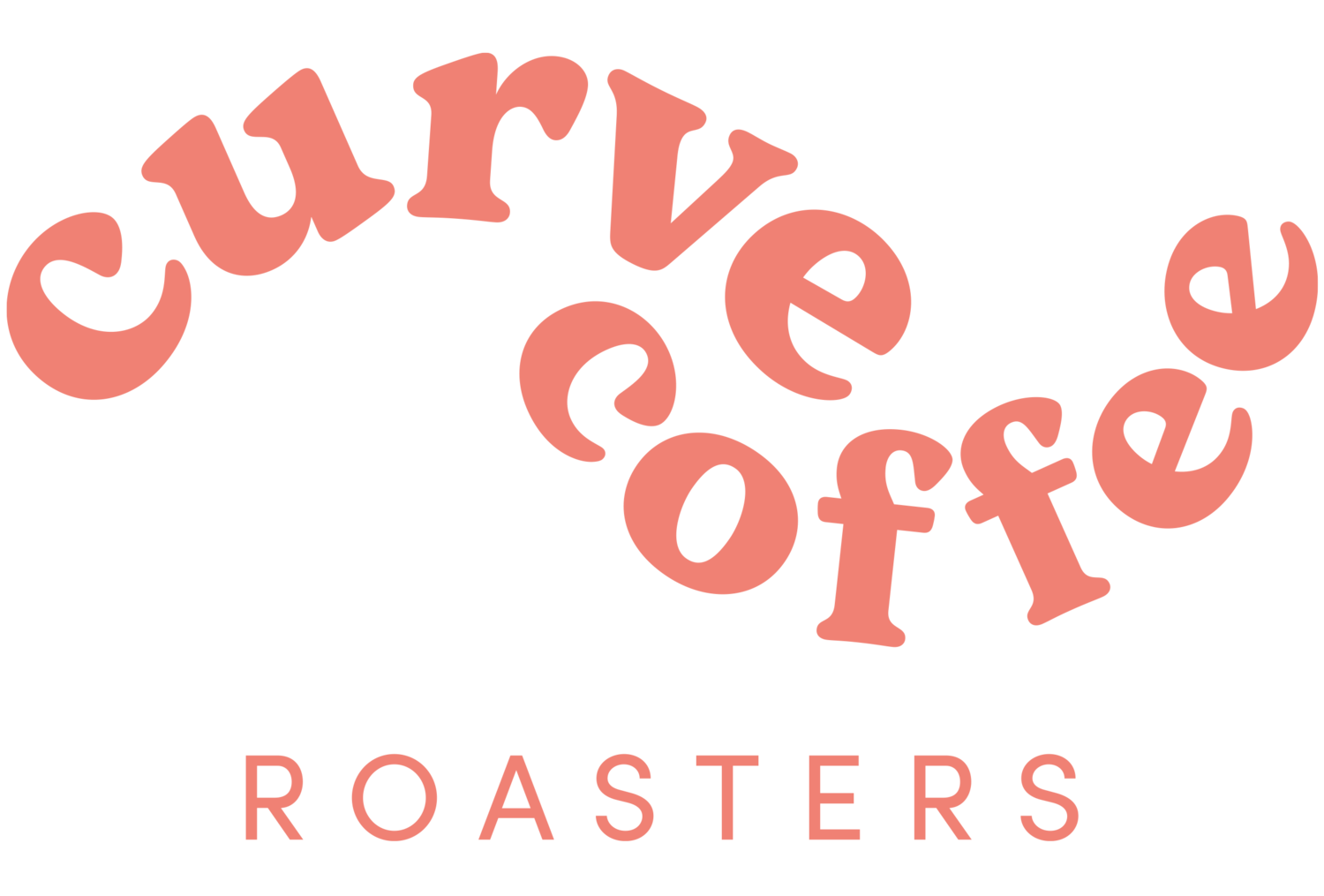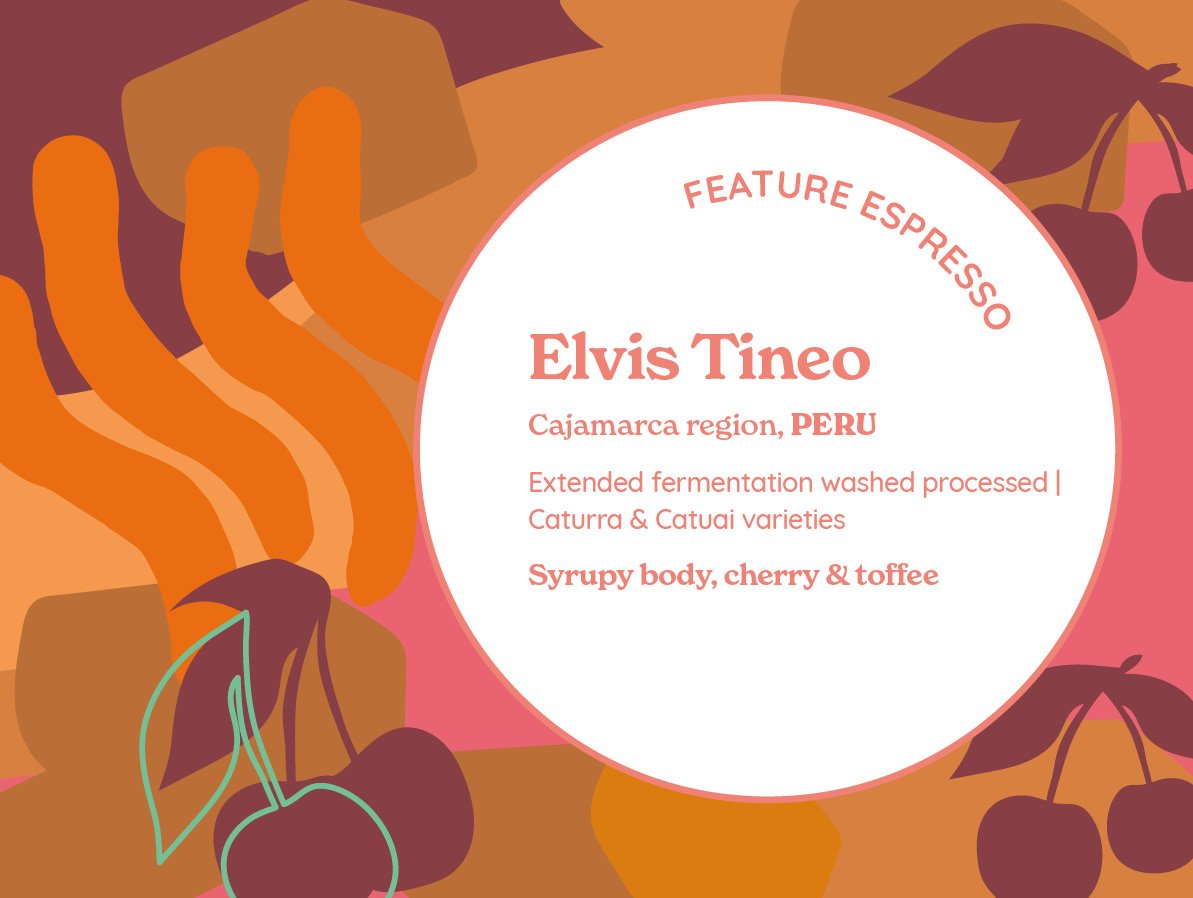FEATURE ESPRESSO | Elvis Tineo Rafael (Extended Fermentation Washed) | Peru
FEATURE ESPRESSO | Elvis Tineo Rafael (Extended Fermentation Washed) | Peru
For best results we would always recommend purchasing whole bean and grinding fresh before brewing. If you don't have a grinder, we can grind according to your preferred brewing method just before shipping.
Great for espresso machines, mocha pots (stove-tops), Aeropress & cafetière. Delicious on its own and with milk.
SHIPPING & DISPATCH:
E-commerce orders are shipped Mon - Fri via Tracked48 Royal Mail service (£3 or free for order above £20).
Delivery upgrade to DHL Express is available at checkout. (Free for order above £50)
Same day dispatch cut off is 12pm.
Key origin info:
Producer: Elvis Tineo Rafael
Processed at: Elvis’ own farm in El Diamante area
Region: Jaen, Cajamarca
Altitude: 1700 masl
Variety: Caturra & Catuaí
Process: Extended fermentation washed process (The coffee is rested in cherry for 1 day prior to de-pulping, followed by 1,5 -2 day fermentation in tank before washing and drying)
Exporter | Importer: Falcon Specialty
Cup profile: Syrupy & sweet, cherry & toffee
Purchasing history: 5 years
More about Elvis:
Elvis Reinerio Tineo Rafael is a second-generation coffee producer from the El Diamante area overlooking the city of Jaen in Cajamarca, Northen Peru. Elvis and his family own around 12 hectares of land between them. Elvis himself owns and manages around 3 hectares, sitting between 1700 to 1900 masl. He is also the one focusing on processing and drying side of the production.
The land is planted mainly with with Bourbon, Caturra and Catuai varieties but more recently some new, rare varieties like Gesha and Centroamericano have also been added. The whole family work the land together, coordinating their picking, processing and drying and sharing their facilities.
El Diamante is a coffee producing area closest to the city of Jaen, main city in the Cajamarca coffee region. We had the privilege of visiting Elvis and his family at their beautiful farm and found out more about their coffee journey. As Elvis explained, coffee farming has been in the family for a long time, they used to produce mostly commercial quality coffees which they sold at the local market. Elvis took over the farm in 2016 and had pivoted toward the production of speciality grade coffee .
Elvis and his family has been working with Falcon Speciality (our exporting and importing partner for Peru) for the last five years. Not only being able to earn good price premiums for the quality of his coffee but also to benefit from the technical assistance and support from Falcon’s agronomy and sustainability team.
While his focus remains entirely on coffee, Elvis integrates sustainable farming practices, using a mix of organic and chemical fertilisers to enhance the health of his soil. Despite facing environmental challenges, Elvis continues the family tradition of coffee cultivation, a practice passed down through generations, and he remains proud of producing high-quality coffee for international markets whilst maintaining his family’s legacy.
His vision for the future is to make La Naranja a sustainable enterprise, continuing to grow and improve the quality of his coffee while honouring his family's legacy.
We’re so pleased to have Elvis’ coffee in the roastery for the fifth season running and it is tasting as delicious as ever.
Elvis’ Extended Fermentation Washed Process:
This particular lot is processed as a washed lot but with an extended fermentation compared to their usual way of processing.
After picking the cherries are first rested in sacks for a day before being de-pulped and dry fermented in plastic bags under shade for 1 and 1/2 to 2 more nights, checked regularly during this time to monitor progress depending on the weather and temperature. Once finished fermenting the coffee is then washed with clean water and laid out to dry on raised beds.











